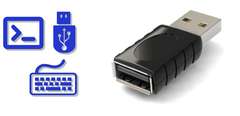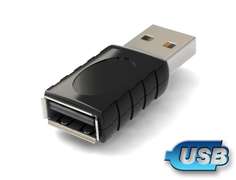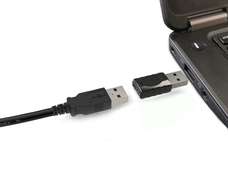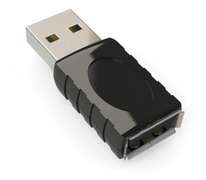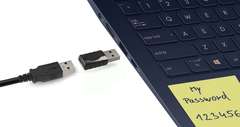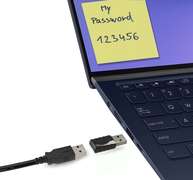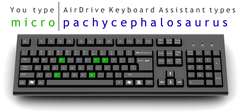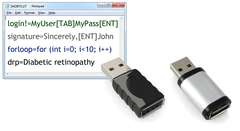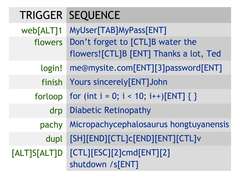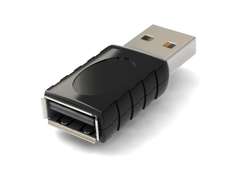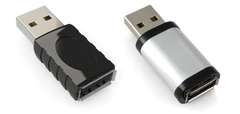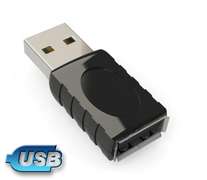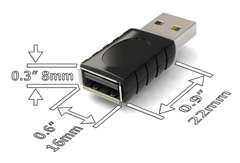AirDrive Keyboard Assistant
The AirDrive Keyboard Assistant is a small USB keyboard adapter capable of typing keystroke sequences when triggered. It can be used for typing login-password combinations, email and message templates, long phrases and names, code snippets, commonly used key sequences, etc. Short keystroke sequences are used as triggers, defined in a file stored on the built-in flash drive. It also features a simple scripting language, allowing to create keystroke generation scripts.
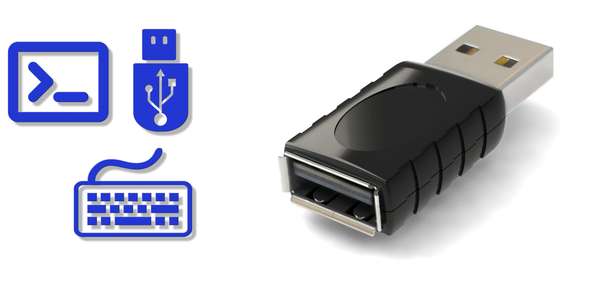
Automatically types keystroke sequences when triggered
Handles annoying regular keyboard operations, such signing in to websites
Can be programmed to type long words, passwords, names, sentences, or entire messages
Does not disrupt standard USB keyboard operation
Internal flash drive with 16MB memory
Keystroke sequences defined in lines in a single file
Runs keystroke generation schemes from scripts
Built-in scripting language interpreter
Can store a backup of typed text
Compact and handy, only 0.9" (22 mm) long
Compatible with all USB keyboards, including USB 3.0
Switches to flash drive mode with a special key combination
Accessible as a USB removable drive for instant data retrieval
Memory protected with strong 128-bit encryption
No software, drivers or configuration required, works out of the box
High quality durable enclosure
Support for multiple keyboard layouts
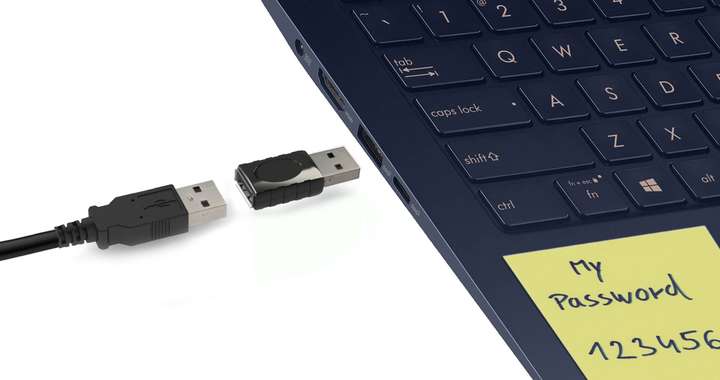
This device loves typing
Tired of typing the same things over and over? Logging in to the same websites, typing the same email a dozen times daily, annoying names or words that you need to type every few minutes? The AirDrive Keyboard Assistant is the perfect solution. Define your most commonly used keystroke sequences, and assign triggers to them. Whenever you type the trigger, the AirDrive Keyboard Assistant will instantly type the sequence for you.
Logins and passwords
Are you clicking "forgot password" more often than actually logging in? So many logins and passwords, that you have a post-it note on your monitor? The AirDrive Keyboard Assistant can take over the process of signing in to multiple websites. Define an unobvious trigger for each website, such as go[Alt]1 (meaning you need to type go and press Alt-1). Then define a keystroke sequence for this trigger, for example my-email@example.com[Tab]my-password[Ent] (meaning the device will type my-email@example.com, press Tab, type my-password and press Enter). All keyboard shortcut sequences are stored in a single file on the internal flash drive, which is secured by a special key combination.
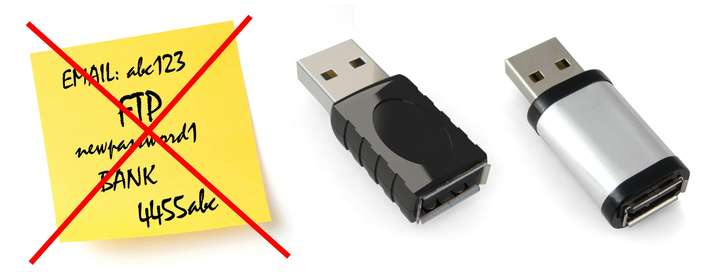
Repeated phrases and names
If you are typing in the same long or annoying words, phrases, sentences, or entire messages, then the AirDrive Keyboard Assistant will relieve you from this. Simply define triggers like Let me know and sequences such as if you need any further assistance, I'm here to help! The device will notice that the trigger was typed, and will finish the sentence for you. Long words such as Micropachycephalosaurus hongtuyanensis can be shortened to a few keystrokes, such as micro (by the way, a Micropachycephalosaurus was a small herbivore dinosaur living in modern day China).
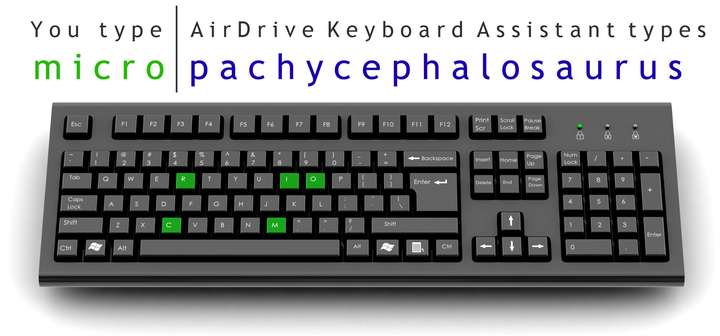
Shortcut examples
Examples of shortcuts are shown in the image. They can include website logins, email and message templates, long words and sentences, programming templates. Special keys can be used by putting abbreviations in brackets, as in the following shortcut, which will duplicate the current line in a text editor: [Sh][End][Ctl]c[End][Ent][Ctl]v. Delays may be contained within keystroke sequences by specifying the duration in seconds in brackets. The following shortcut will close Windows by calling the shutdown program from the command prompt: [CTRL][ESC][2]cmd[ENT][2]shutdown /s[ENT]
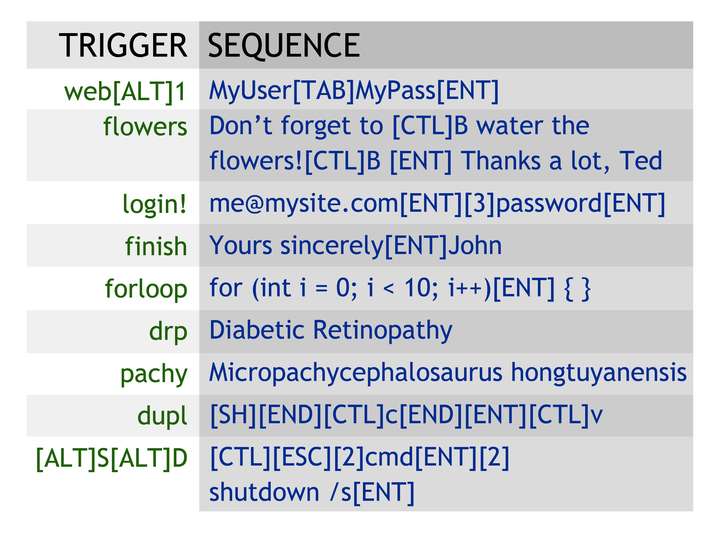
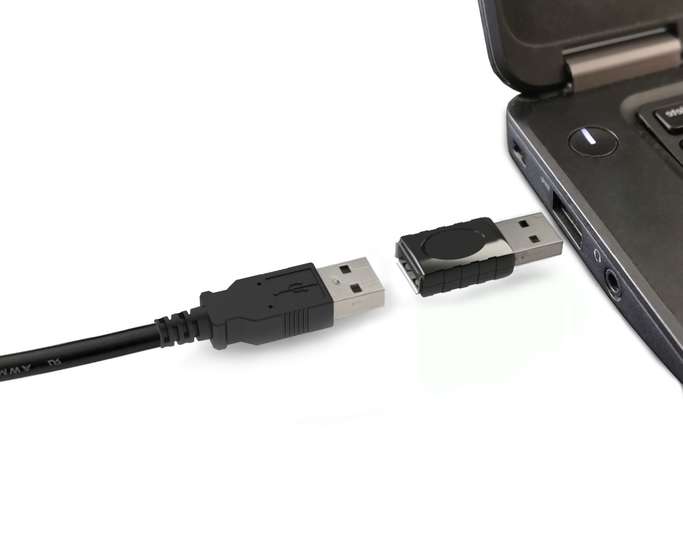
How it works
The AirDrive Keyboard Assistant passively monitors the USB bus for keystrokes with a 32X waveform oversampling algorithm based on a sophisticated FPGA chip. When it detects a series of user-defined keys (called a trigger), it will generate the corresponding sequences of keystrokes (called a sequence). This works through a low-level USB mechanism, which doesn't require any software or drivers, and is OS-independent. Both the trigger, and the sequence may contain combinations of keys and modifiers, such as [Ctl]c or [Alt][F4]. The keystroke sequence may also contains special keys and delays in brackets.
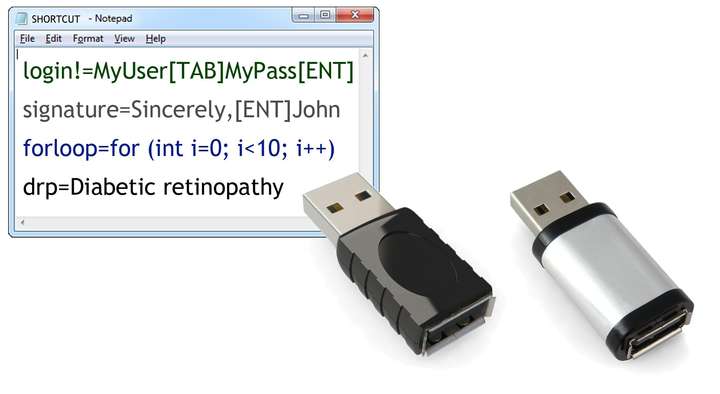
Easy configuration
The AirDrive Keyboard Assistant is quick and easy to configure. Press a special key combination, and a removeable drive will show up, with the file SHORTCUT.TXT. This file will contain the definitions of shortcut sequences in successive lines. Pressing the key combination again will make the device reload the modified shortcut sequences.
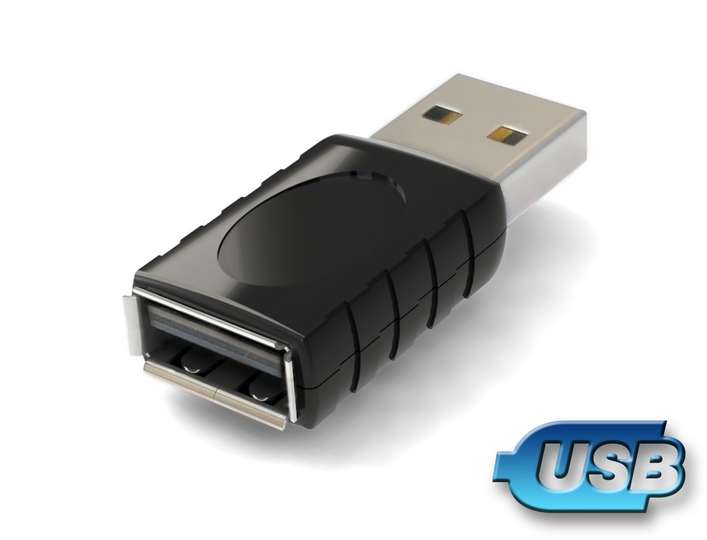
High security standards
The AirDrive Keyboard Assistant is designed to store sensitive data, and a lot of effort has been put into making the access secure. The internal flash memory is protected by a 128-bit encryption algorithm. Additionally access to the internal flash drive is secured by a brute-force attack detection and prevention algorithm. The device will detect attempts of cracking the key combination and will quickly go into an adaptive-length timeout. The timeout duration is stored even when power is removed, making the device almost impossible to break into.
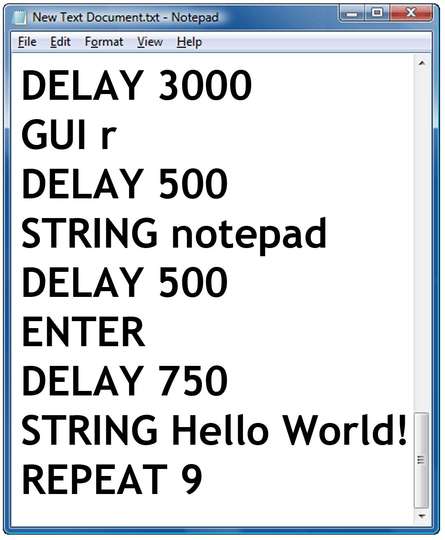
Scripting language
The AirDrive Keyboard Assistant is also a multi-role security and pen-testing device. It can run keystroke-generation scripts thanks to a keystroke parser based on a simple scripting language. Scripts are more sophisticated versions of standard keystroke sequences, and may contain loops, delays, advanced triggers based on keyboard activity.
Flash drive vs. Wi-Fi
The AirDrive Keyboard Assistant comes in two variants: standard (flash drive) and Wi-Fi. The main difference is the way the device is accessed during the configuration process. The standard version can be switched into a flash drive by a special key combination, as a result of which a removeable drive will pop-up. This drive will contain a file with shortcuts named SHORTCUT.TXT, and a configuration file named CONFIG.TXT. The Wi-Fi version handles configuration differently. It creates a Wi-Fi hotspot, which you can connect to from any device with Wi-Fi such as a computer, laptop, tablet or smartphone. Once connected, the device may be accessed by a special configuration page on the built-in webserver. Both the standard and Wi-Fi versions only differ by the way they are configured. Once configured, they will respond to triggers and generate keystroke sequences in the same way. Which version shall you choose? It's a matter of personal preference. The general rule of the thumb is that the standard flash-drive version is faster to access, while the Wi-Fi version contains a more sophisticated interface with explanation dialogs and examples.
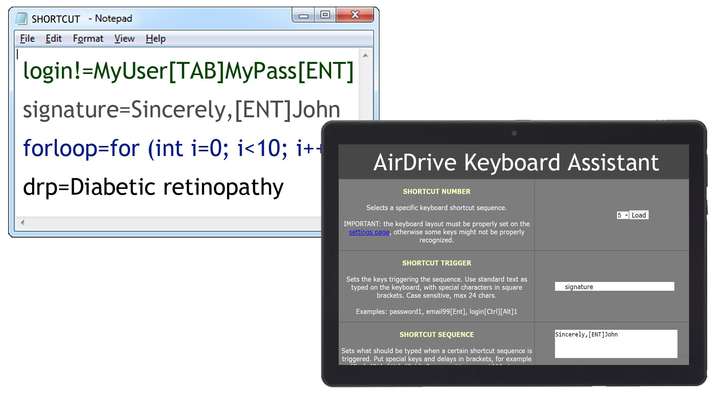
Keyboard compatibility limitations
The device will work with almost all types of physical USB keyboards (it won't work with internal laptop keyboards). It works fine with wireless keyboards, with exception of Bluetooth keyboards. Support for some gaming keyboards is not fully guaranteed, as they often use proprietary protocols.
